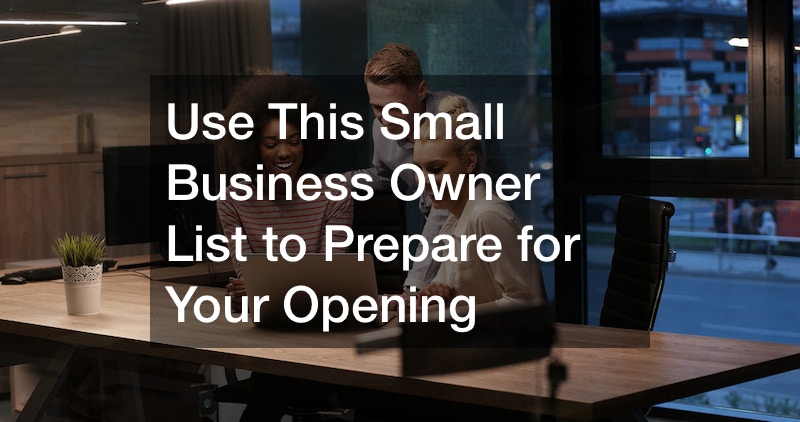
Many people dream of owning their own company or business. If you’re a welder, you can start your own welding business and start making money. However, the business side of things is different from the actual work, and you need guidance if you’ve never owned a welding business before. In this article, we give you tips on starting your own welding business.
Start By Making Plans
Like any other business venture, you should have a properly laid out plan on how you want your welding business to operate. The best approach is to create a business plan. You can create it yourself or hire someone to do it for you.
Some of the key factors you should consider in the plan include the name of the business, the cost of starting the business, your target market and how you’re going to reach it, and the pricing of your products. You should also think about your business team or staff, the business structure, and the ideal location of the business.
The total cost of starting your own welding business will depend on many factors, including the size and location of the business. If you don’t have enough capital, you can start with a modest startup and grow with time. The costs will mostly go to rent, tools, electronics, personal protection equipment, mobile service options, and insurance.
Your target market is one of the most important factors to consider when starting a business. To have a lucrative and sustainable business, you should target people and businesses with ongoing welding needs. The business can engage in both short-term and long-term projects. Choosing the right name for the business is also important.
Registering the Business
After doing the plans, you begin the actual work, which starts with the registration process. Your business plan should indicate the specific business structure you prefer, be it as a sole proprietor, partnership, or LLC.
The structure you choose will determine how you pay your taxes. In addition, your business must be registered with the IRS. If you’re alone, the perfect route to take when starting your own welding business is the sole proprietorship. Some of the benefits of a sole proprietorship include having the freedom to choose your name, and operate under your own Social Security Number, and the business profits and losses go on your personal tax returns. You can also get an employer identification number and hire other welders.
Forming a legal entity like an LLC has the advantage of protecting you from business liabilities. You will not be personally liable for the liabilities of the business. This means that in case the business is sued, only your business is liable. If one of your employees gets injured at work and pursues compensation through a work injury lawyer, your insurance, workers’ compensation scheme, or business resources should pay for the compensation.
As you think about the right business structure, remember that you’ll first need to be licensed as a welder.
Necessary Permits and Licenses

One of the requirements for your business to be considered a legitimate welding business is that you must have all the required permits and licenses. You must take a written test to earn the American Welding Society – AWS – certification. You must undertake a practical AWS performance exam, then submit a Certified Welder Application. Once you have these qualifications and certifications, you can apply for a state license.
The certifications have different codes for different types of skills and metals. They include tubular structures, structural welding code for steel, railroad welding, chemical plant and petroleum pipe welding, light gauge steel, reinforcing steel, and sheet metal welding.
The licensing requirements for a welding business vary from state to state. Therefore, it’s important that you do your research on all permits and licenses required in your state when starting your own welding business. In addition to the varying state requirements, different types of welding also require different types of licensing. The number and type of licenses required for industrial welding are different from what you’ll need for a small welding shop.
You should maintain all the required licenses at all stages of the business. If specific permits or licenses need to be renewed, you’ll have to renew them to stay in business. You may be required to submit an annual or biennial renewal application, pay a renewal fee, or even be required to pursue continuing education. You will also be required to comply with all applicable labor safety requirements.
Business Type or Specializations
As a welder, you already know that there are different types of welding. Depending on your skills, experience, interests, and business objectives, you should choose the specific type of welding you want to undertake.
Some of the options you can choose include steel construction fabrication, heavy stainless steel fabricating, breakdown welding service, heavy haulage trailer manufacturing, underwater welding service, aluminum welding, and mobile welding service.
You can choose your line of business based on the many applications of welding. For example, you can specialize in building infrastructure such as bridges. The other major applications include theme parks, shipbuilding, the automotive industry, sheet metal fabrications, aircraft construction, railroads, and many more. When starting your own welding business, you should have a plan for the specific applications you want to undertake.
The details of the specific type of welding business you want to pursue should also be included in your business plan. This will help you plan for requirements that are specified in that line of welding. For example, you might need a specific license to be in that specific space, in addition to the general certifications that you hold as a welder. Having it on the business plan will also help in starting to develop appropriate marketing strategies for that specific audience or target market.
Some businesses or companies may also offer additional services, such as metal recycling. This is a good initiative that helps in environmental sustainability by ensuring that metals that are considered not useful are recycled and used again, instead of dumping them and creating environmental hazards.
Tools Involved in Welding

Tools are some of the essential requirements when starting your own welding business. Your business will be as good as the tools you have. Of course, you and your employees must also know how to properly use the tools.
One of the most important tools for a welder is a welding machine. This is the primary device for fusing materials. It is also one of the most pricey tools you’ll have. This machine is also known as a welding gun. It provides the power to generate heat that is required to heat the metals. Common welding machines include stick welding machines, MIG and flux-cored welding machines, and TIG welding machines. Each type of these machines is suitable for a specific type of material, feature, and use.
The second most important tools and materials are the shielding gas and cylinder. Shielding gasses help in protecting the welded area from atmospheric gasses such as water vapor and oxygen. The shielding gasses are composed of a mix of different gasses that include argon, carbon dioxide, helium, nitrogen, and hydrogen. The cylinders come in varying sizes.
You’ll also need protective gear like helmets and safety glasses. The helmet protects the welder’s face from sparks and fire. As a metal building contractor or welder, you also need safety glasses. Other essential tools needed include welding gloves, consumable electrodes, MIG welding pliers, chipping hammer, welding framing jig, metal brush, speed square, sheet metal gauge, C clamp, welding cart, angle grinder, welding magnets.
Differences Between Welding and Metal Fabrication Shop

Many people don’t know that welding is different from metal fabrication. As a welder who is planning on starting your own welding business, we assume you already know the difference.
Welding is defined as the process of joining pieces of metals together through fusion. The materials being joined must have similar melting points. Metal fabrication involves bringing different metal parts and assembling them together, or better known as fabricating. Some of the processes used in metal fabrication include punching, machining, cutting, casting, stamping, and shearing.
It’s important to note that not all metal fabrication involves welding. However, both metal fabrication and welding apply similar processes, like bending and assembling. As you plan on starting your own welding business as an experienced welder, the difference will only be important when deciding on the name, structure, and type of business. Do you want your potential customers to know you as a shop welder or metal fabricator?
As you provide details of the specific services you have, you should be able to make it clear what your customers should expect from you. There are different expectations between a mobile welding business and a metal fabrication shop. Should you decide to go with mobile welding, your customers will be expecting welding services.
Welding Business Inspections

Although you think you know all that it takes to start a welding business, you may miss out on some major issues that need to be prioritized. For example, if you have been working under someone or for a company as a welder, you may not know about all the welding inspections that go with the business.
One of the major reasons why these inspections are conducted is to ensure that the weld is of suitable quality for its intended purpose or application. Inspection is carried out based on specific criteria. The weld is inspected for strength, safety, quality, and many other factors. For example, if you’ve built a commercial metal door, it must be strong, safe, and of the required quality. Codes and standards are developed that the finished product must meet to pass the inspection.
There are three main stages of the inspection – pre-weld inspection, during-weld inspection, and after-weld inspection. You need to have a checklist to thoroughly prepare for all these stages of inspection.
Consider Welding Business Insurance
As you undertake to start a business, you can avoid expenses or costs associated with certain risks by taking welding insurance. In fact, this is one of the legal requirements that you must comply with to start your business.
There are different types of insurance policies you can take, depending on the specific types of risks you want to protect yourself against. For example, if you want your insurance to cover injuries suffered by your workers during the metal cutting process or any welding activity in the workshop, there is specific insurance for that – workers’ compensation insurance. If you’re not sure of the risks you want to protect yourself against, you can take general liability insurance.
Market Your Business
Any business venture aims to make a profit. This is the same reason why you have plans of starting your own welding business. To make a profit, you should be able to sell your goods at a margin. Your marketing strategies should aim to reach your specific target market who can buy your products or services at the set prices.
Create a website that will help spread your online presence. The website should contain everything that needs to be known about the businesses, including the specific services offered. For example, if you’re in the business of constructing metal buildings, the website should not miss this information.
Social media is one of the greatest marketing platforms of modern times. Therefore, you should also create social media profiles or pages to help in advertising. Platforms you should consider include Facebook, Twitter, and Instagram.
The best marketing is through referral or word of mouth. This means that, as you’re starting your own welding business, you should endeavor to provide quality services at all times. Satisfied customers will refer your business to their friends, colleagues, and family members.
If you dream of starting your own welding business, we hope this guide has been of great help to you. Take note of all essential requirements, including permits and licenses that would be required in your state. Ensure you have a good business plan that documents everything that you plan to do.



